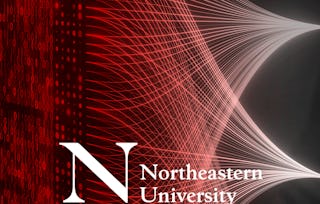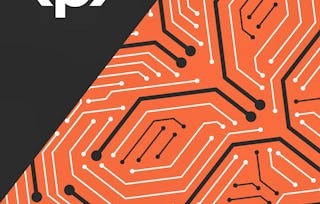Dieser Kurs führt in die grundlegenden Konzepte und neuen Technologien in den Bereichen Datenbankdesign und -modellierung, Datenbanksysteme, Datenspeicherung und Daten-Governance ein. Er bietet einen ausgewogenen Theorie-Praxis-Fokus und deckt das Entity-Relationship-Modell und das UML-Modell, das relationale Modell, relationale Datenbanken, Structured Query Language und zwei Varianten von NoSQL-Datenbanken in MongoDB und Neo4j Graph-Datenbank ab. Er beinhaltet auch eine kurze Einführung in Big Data Management, einschließlich Hadoop, MapReduce und Apache Spark. Dieser Kurs vermittelt die Theorie und Anwendungen des Datenbankmanagements zur Unterstützung von Data Analytics, Data Mining, maschinellem Lernen und künstlicher Intelligenz.

Von der Datenbank zur KI: Praktische Data Analytics Integration

Kompetenzen, die Sie erwerben
- Kategorie: Apache Spark
- Kategorie: Datenbank-Systeme
- Kategorie: Big Data
- Kategorie: Unified Modeling Language
- Kategorie: Datenbank-Design
- Kategorie: Konzeptioneller Entwurf
- Kategorie: Datenmodellierung
- Kategorie: Apache Hadoop
- Kategorie: Datenmanagement
- Kategorie: Datenbankarchitektur und -verwaltung
- Kategorie: Datenbank-Management-Systeme
- Kategorie: Technologien zur Datenspeicherung
- Der Fähigkeiten-Abschnitt ist eingeklappt. 9 von 12 Fähigkeiten werden angezeigt.
Wichtige Details

Zu Ihrem LinkedIn-Profil hinzufügen
8 Aufgaben
Erfahren Sie, wie Mitarbeiter führender Unternehmen gefragte Kompetenzen erwerben.

In diesem Kurs gibt es 4 Module
In diesem Modul werden Sie die Grundprinzipien des Datenbankmanagements erforschen, wobei der Schwerpunkt auf den Unterschieden zwischen dateibasierten und datenbankbasierten Ansätzen des Datenmanagements liegt. Sie lernen die Schlüsselelemente eines Datenbanksystems und die Vorteile der Verwendung von Datenbankmanagementsystemen (DBMS) zur Organisation, Speicherung und Manipulation von Daten kennen. Im Rahmen dieses Moduls entwickeln Sie Fähigkeiten im Bereich des Datenbankdesigns und der Datenbankverwaltung und gewinnen ein tieferes Verständnis dafür, wie DBMS das Datenmanagement verbessern und die professionelle Arbeit in Bereichen wie der Datenanalyse unterstützen.
Das ist alles enthalten
3 Videos7 Lektüren2 Aufgaben2 Diskussionsthemen
Dieses Modul behandelt die Architektur und Kategorisierung von Datenbankmanagementsystemen (DBMS). Sie lernen die Schlüsselkomponenten der Datenbankmanagementsysteme (DBMS) kennen, darunter den Abfrageprozessor und den Speichermanager, und erfahren, wie sie bei der Datenverwaltung zusammenwirken. Sie werden auch lernen, DBMS auf der Basis von Faktoren wie Datenmodellen, Architektur und Nutzung zu kategorisieren und ihre Eigenschaften und realen Anwendungen hervorzuheben. Dieses Modul bietet auch Ressourcen und Prompts für Diskussionen, um das Verständnis der Datenbankmanagementsysteme (DBMS) und ihrer Anwendungsfälle im Datenmanagement zu vertiefen.
Das ist alles enthalten
5 Lektüren2 Aufgaben1 Diskussionsthema
In diesem Modul lernen Sie die grundlegenden Schritte des Datenbankdesigns kennen, wobei der Schwerpunkt auf der konzeptionellen Datenmodellierung mit Hilfe des Entity-Relationship-Modells (ER) liegt. Sie werden lernen, wie Sie Geschäftsanforderungen erfassen, wichtige Entitäts- und Beziehungstypen identifizieren und ein konzeptionelles Datenmodell entwickeln. Dieses Modell dient als Blaupause für das Datenbankdesign, bevor Sie zum logischen und physischen Design übergehen. Sie werden sich auch mit den LIMITs des ER-Modells befassen und lernen, wie Sie diese umgehen können. Am Ende dieses Moduls werden Sie wissen, wie Sie reale Geschäftsprozesse in ein klares, organisiertes konzeptionelles Datenmodell übersetzen können.
Das ist alles enthalten
1 Video5 Lektüren2 Aufgaben
In diesem Modul werden wir drei weitere Konzepte der semantischen Datenmodellierung kennen lernen: Spezialisierung/Generalisierung, Kategorisierung und Aggregation. Diese Konzepte verbessern und erweitern das im vorherigen Modul besprochene ER-Modell. Wir werden ein alternatives konzeptionelles Modell vorstellen: das Klassendiagramm der Unified Modeling Language (UML). Die UML ist eine Modellierungssprache, die bei der Spezifikation, Visualisierung, Konstruktion und Dokumentation von Artefakten eines Softwaresystems hilft. Die UML kann Falldiagramme, Sequenzdiagramme, Paketdiagramme und Diagramme zur Bereitstellung usw. anbieten. Hier verwenden wir die UML für die konzeptionelle Datenmodellierung.
Das ist alles enthalten
1 Video6 Lektüren2 Aufgaben
Dozent

Mehr von Datenanalyse entdecken
 Status: Vorschau
Status: VorschauNortheastern University
 Status: Vorschau
Status: VorschauNortheastern University
 Status: Kostenloser Testzeitraum
Status: Kostenloser TestzeitraumBoard Infinity
Warum entscheiden sich Menschen für Coursera für ihre Karriere?

Felipe M.

Jennifer J.

Larry W.

Chaitanya A.

Neue Karrieremöglichkeiten mit Coursera Plus
Unbegrenzter Zugang zu 10,000+ Weltklasse-Kursen, praktischen Projekten und berufsqualifizierenden Zertifikatsprogrammen - alles in Ihrem Abonnement enthalten
Bringen Sie Ihre Karriere mit einem Online-Abschluss voran.
Erwerben Sie einen Abschluss von erstklassigen Universitäten – 100 % online
Schließen Sie sich mehr als 3.400 Unternehmen in aller Welt an, die sich für Coursera for Business entschieden haben.
Schulen Sie Ihre Mitarbeiter*innen, um sich in der digitalen Wirtschaft zu behaupten.
Häufig gestellte Fragen
Um Zugang zu den Kursmaterialien und Aufgaben zu erhalten und um ein Zertifikat zu erwerben, müssen Sie die Zertifikatserfahrung erwerben, wenn Sie sich für einen Kurs anmelden. Sie können stattdessen eine kostenlose Testversion ausprobieren oder finanzielle Unterstützung beantragen. Der Kurs kann stattdessen die Option "Vollständiger Kurs, kein Zertifikat" anbieten. Mit dieser Option können Sie alle Kursmaterialien einsehen, die erforderlichen Bewertungen abgeben und eine Abschlussnote erhalten. Dies bedeutet auch, dass Sie kein Zertifikat erwerben können.
Wenn Sie ein Zertifikat erwerben, erhalten Sie Zugang zu allen Kursmaterialien, einschließlich der benoteten Aufgaben. Nach Abschluss des Kurses wird Ihr elektronisches Zertifikat zu Ihrer Erfolgsseite hinzugefügt - von dort aus können Sie Ihr Zertifikat ausdrucken oder zu Ihrem LinkedIn-Profil hinzufügen.
Ja. Für ausgewählte Lernprogramme können Sie eine finanzielle Unterstützung oder ein Stipendium beantragen, wenn Sie die Anmeldungsgebühr nicht aufbringen können. Wenn für das von Ihnen gewählte Lernprogramm eine finanzielle Unterstützung oder ein Stipendium verfügbar ist, finden Sie auf der Beschreibungsseite einen Link zum Antragsformular.
Weitere Fragen
Finanzielle Unterstützung verfügbar,


